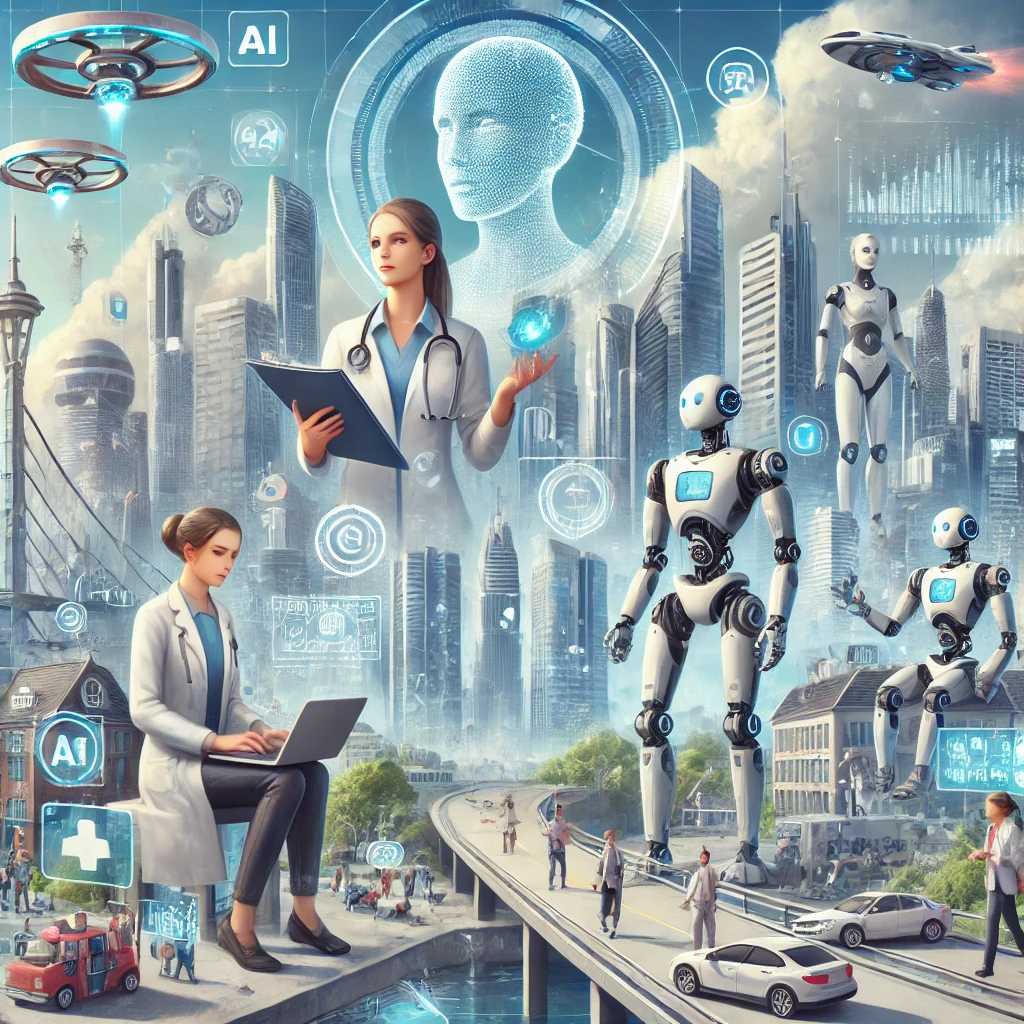
Generative AI is poised to have a transformative impact on society and the workforce across several dimensions:
- Automation and Efficiency: Generative AI can automate routine and repetitive tasks, which could lead to increased efficiency in various industries. For example, in journalism, AI can write standard reports, allowing human journalists to focus on in-depth investigative work. In design, AI can generate initial models, speeding up the creative process.
- Job Displacement and Creation: While there is a concern that AI could displace jobs, particularly in sectors reliant on routine tasks, it also has the potential to create new types of jobs. These could include roles in AI management, oversight, and development, as well as new opportunities in industries that harness AI to offer new services or products.
- Education and Skill Development: The rise of generative AI emphasizes the need for a workforce skilled in AI literacy, data analysis, and ethical considerations surrounding AI use. Educational systems may need to adapt to prepare individuals for these new demands, focusing more on critical thinking, creativity, and technical skills.
- Ethical and Societal Considerations: Generative AI raises significant ethical questions, such as biases in AI outputs, the potential for misuse (e.g., deepfakes), and privacy concerns. Addressing these issues will require robust regulatory frameworks and ongoing dialogue among stakeholders to ensure that AI is used responsibly.
- Economic Impact: AI could drive economic growth by creating new market opportunities and increasing productivity. However, it could also exacerbate economic disparities if the benefits of AI are unevenly distributed or if there is a significant divide between those who have the skills to work with AI and those who do not.
- Cultural and Creative Fields: In creative sectors, generative AI can be both a tool and a collaborator, helping to push the boundaries of art, music, and literature. However, it also prompts discussions about the nature of creativity and originality.
- Healthcare: In healthcare, AI can help diagnose diseases more accurately and quickly, recommend personalized treatment plans, and automate administrative tasks, potentially improving care outcomes and efficiency.
The impact of generative AI will be broad and multifaceted, requiring proactive adaptation from individuals, businesses, and governments to harness its benefits while mitigating its risks.